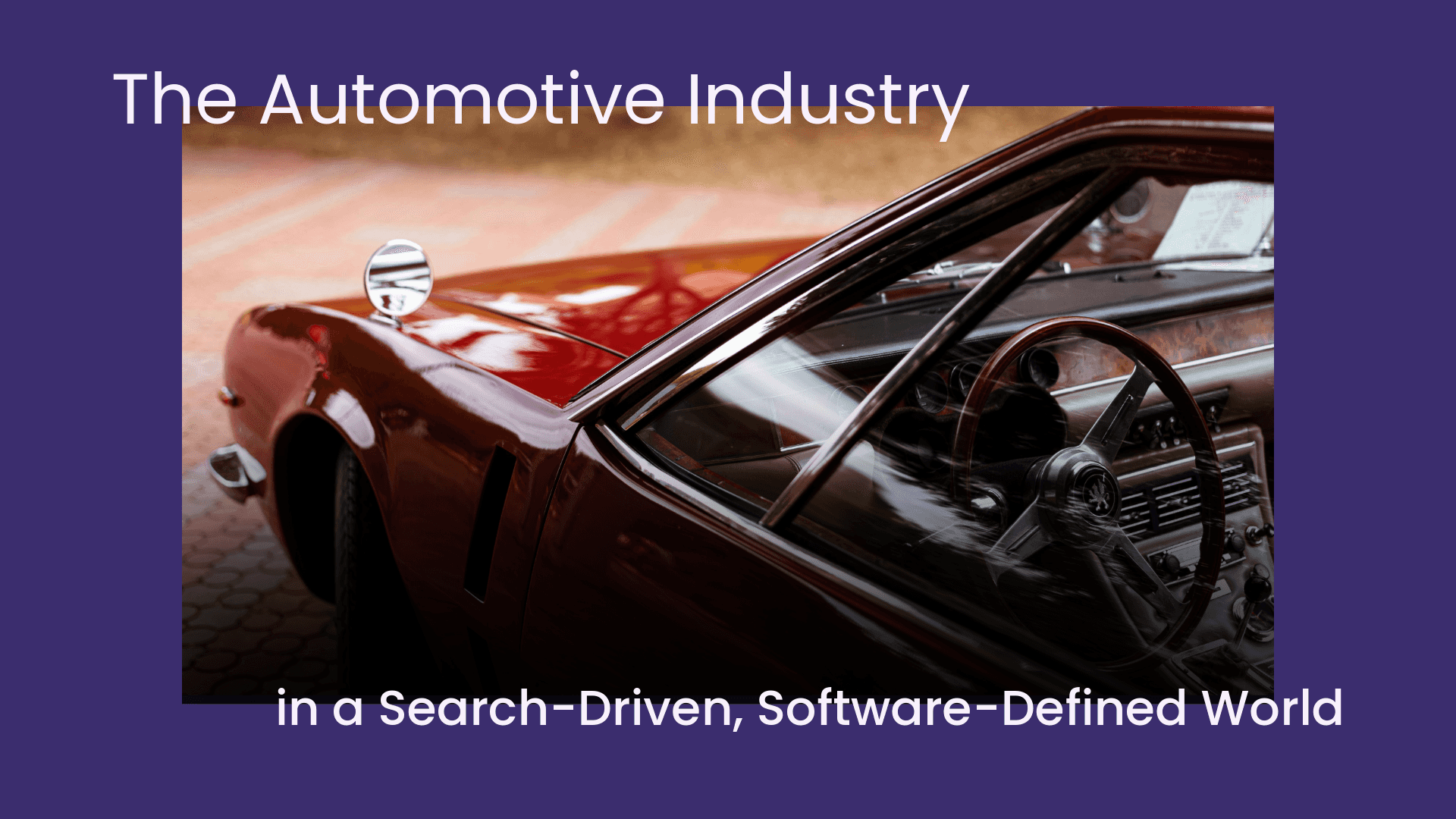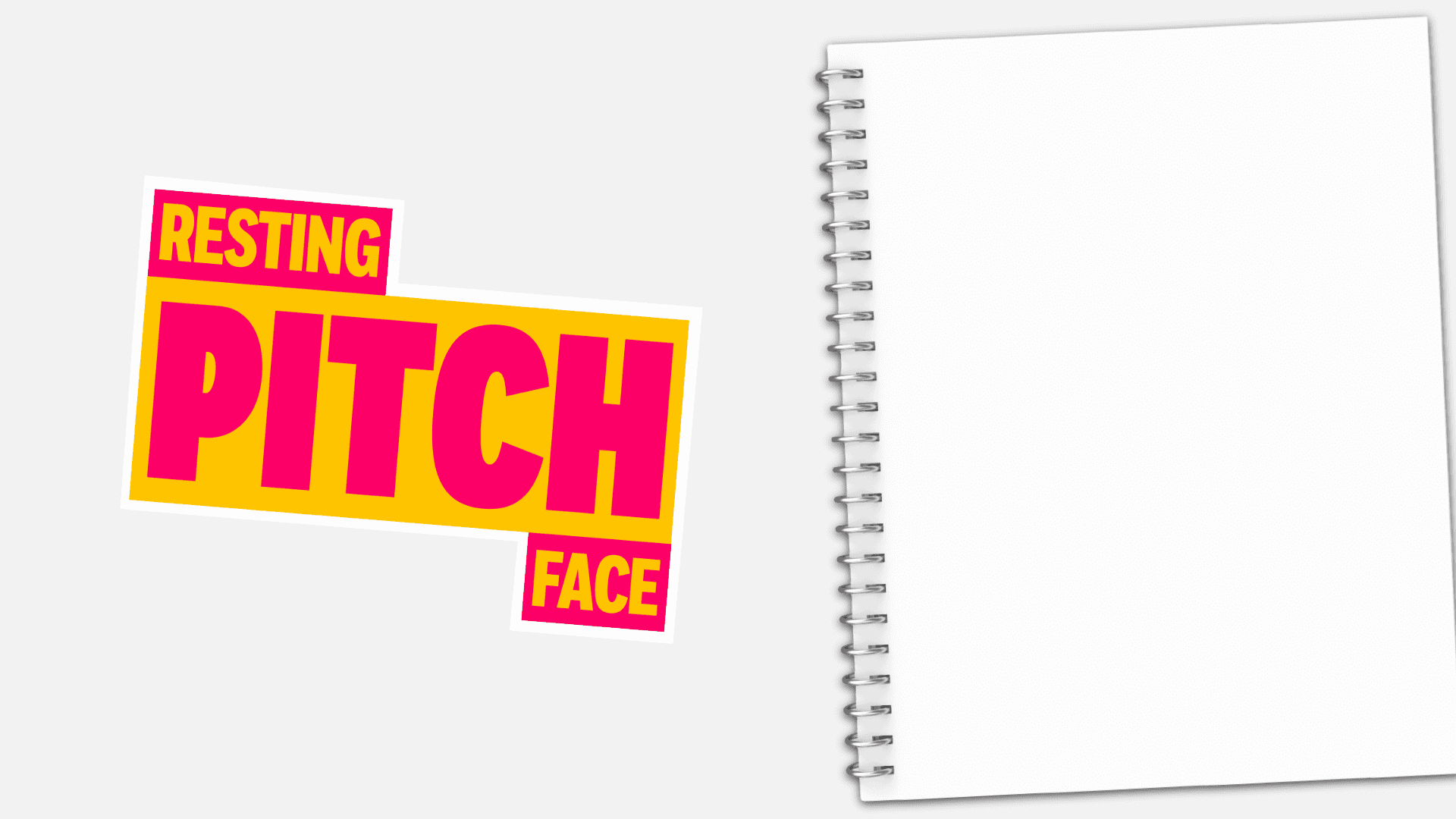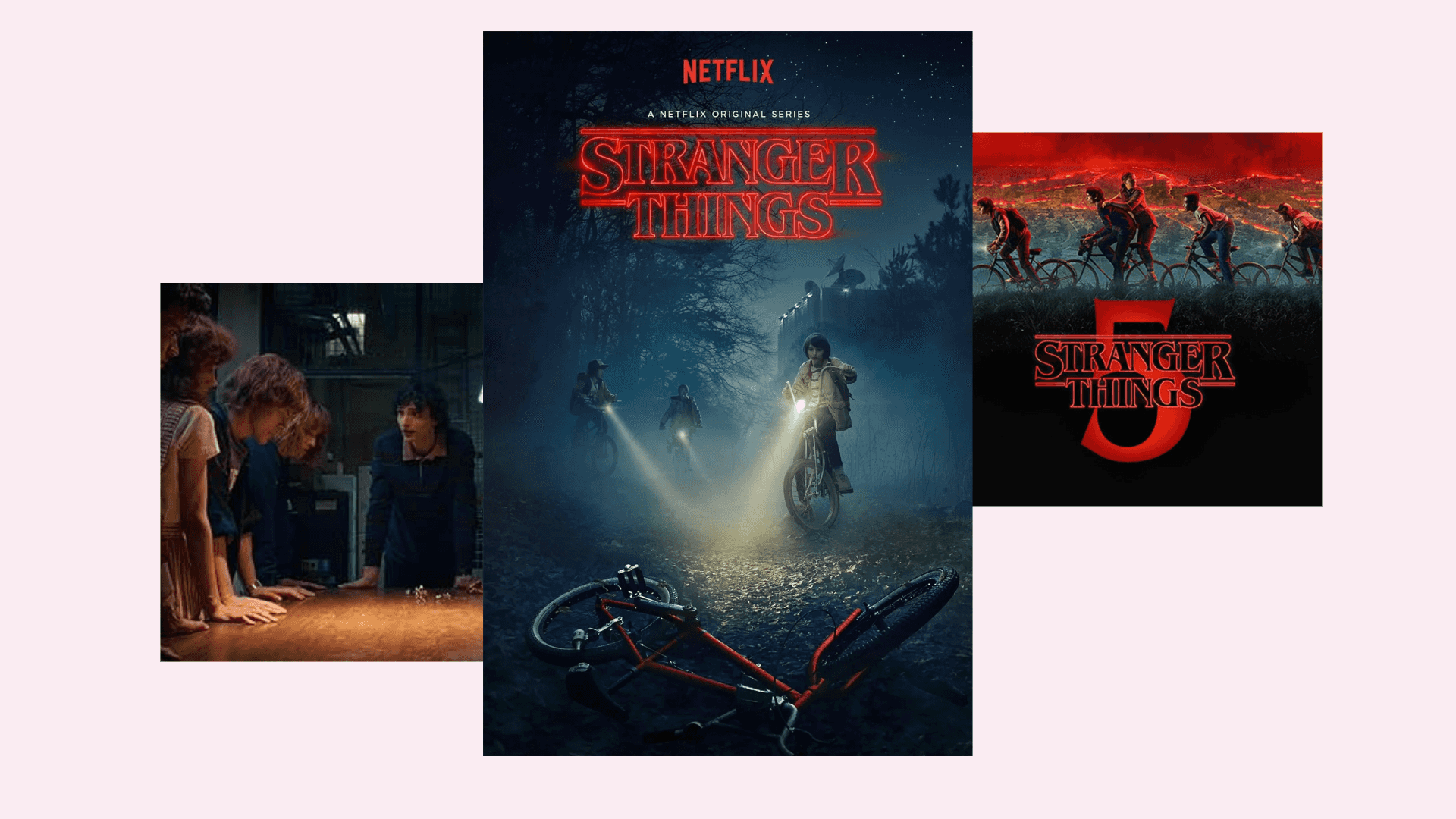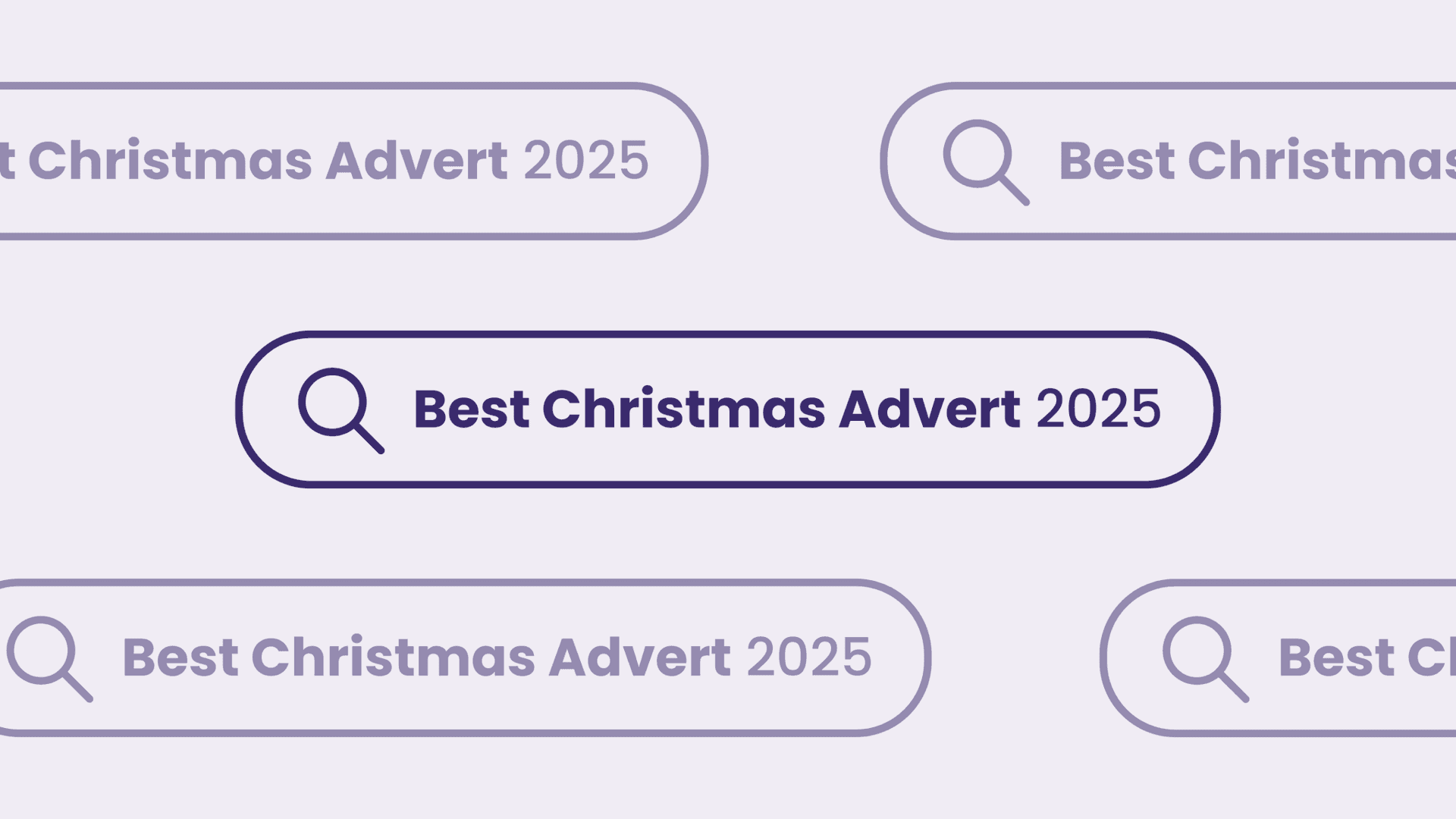
the white lies of pitching
Written by Polly
RESTING PITCH FACE EP 6: THE WHITE LIES OF PITCHING
On this week’s episode of Resting Pitch Face, we are talking about the well-known agency tactic of bending experience to fit a brief.
We’re discussing whether brands need to request such niche requirements when briefing a project, and the importance of understanding how digital skills services can adapt across industries.
We’re giving our view on brief-grabbing and how this has changed over the years and some of those white lies we’ve seen used to tick a box in the pitching process.
Listen on Spotify or Apple Podcasts or subscribe to our YouTube channel for weekly episodes.
See below for a full transcription of episode 5.
VIDEO TRANSCRIPT
Polly: So, podcast number, is it 6, 7? Six? Who knows. Whatever we’re up to right now.
Lee: Seven? We launched with three.
Polly: Honestly, because we’re already [crosstalk 00:00:19.261]
Lee: We’re churning them out.
Polly: Just part of our lives now. I’ve got a good topic. It’s quite a controversial one, which are our favourite ones, and probably a situation that we’ve experienced being agency side. So, we’ll quite often get a briefing from a client or a potential new client. And they might ask for a specific skill set coupled with relevant experience, so they might be a hospitality client that has a website they take booking through. And they might ask for a project that directly links, and has that same [inaudible 00:01:12]. It would have a booking function website, and it would be run through the same platform, or whatever else. When brands put out these requests to agencies and do list these requirements, an awful lot of those agencies will just bullshit their way through, to make anything link when actually, it’s really not.
Good example of that would be it might be a sportswear company. They’ve asked for relevant experience that you can prove that you’ve worked with brands at that level in a similar field, and there might be somebody that works for you that 10 years ago did a freelance project for somebody in that sector, and you took that into your pitch. How do we feel about that? Is that okay?
Lee: I think it’s hard to quantify, and you’ve gotta look at it from both sides of the table. I think brands do it as a prerequisite because they feel like perhaps they then won’t have to invest as much time explaining the business. However, every agency does pretty much what you’ve just said there, to meet those prerequisites. I think what brands fail to understand is being an expert in a service means that you can apply that service where it needs to be applied. Yes, having experience in the sector sometimes helps, especially if you’re in, like, legal, for example, or anything to do with finance, because the regulations around finance are strict. So, having a little bit of experience, in that respect, helps. But, at a service level, for selecting a partner, I think it’s quite an old-school way of thinking about it. If you’re going to select a partner for a service that you need to be delivered at a certain standard, you should be more interested in the capability to deliver that service, not who they’ve worked with that are the same as you.
Polly: Yeah. Because I think you need to look at it like if you’ve got an online store, if you’ve got an e-commerce site, then actually what you’re just looking for is people that understand that, not people that have sold teddy bears before because your site sells teddy bears. It’s like what relevance does that actually have? That’s not gonna affect their skill set or affect their ability to deliver the service.
Lee: Yeah. I think there’s a place for both. I think that’s where agencies specialize. And agencies have gone down the route of just doing, like, travel, for example, because in that sector, I guess there are intricacies with what’s required online, bookings, management, backend, that perhaps would benefit if you’ve got a bit of experience in that sector. But I would say 85% of industries and clients don’t need the hands-on experience to find a partner that’s gonna do a really good job. Yeah, I don’t see it being a necessity as much as the emphasis is placed on that. And the fact is that agencies will come back with…
Polly: Just bullshit answers.
Lee: …something that’s on the fucking skin of the teeth.
Polly: I think the bit that annoys me is the blatant lies that aren’t always necessary. Like, I’ve been in a situation before where, on a proposal, it was put down that I’d been at the company for X amount of years, to make me seem like I was in a more reliable and stable position, because the brief was heavily centered around, like, my role at the time. But I actually felt, like, really uncomfortable about that lie being… Because all you have to do is go look at somebody’s LinkedIn. You can see how long they’ve worked somewhere. So I think it’s things like that that I’ve always found, like, quite uncomfortable with this process, is where you will put an outright lie in something, just to potentially help you do a little bit better in a pitch. But again, I guess that comes down to whether you’re…you, as a business.
Lee: I mean, we’ve all done things and said things, especially in the early days, to get you in the room that you need to be in. I think that… I won’t blame… I’ve done on it. I wouldn’t blame anyone for doing that.
Polly: No.
Lee: But, where possible, you obviously need to be transparent with what’s on deck. Like, if you’ve got people in there that have worked there for a length of time, you don’t extend that because it looks better. That’s not something that you should be doing. That’s dodgy.
Polly: Yeah.
Lee: And I think clients know that as well.
Polly: You play on the fact that you’re giving them quite a big deck or a big proposal, that they’re not gonna fact check everything. So they’re actually putting quite a lot of trust in you to deliver the truth, which, you know, if you’ve got integrity as a business, you will. You might embellish some bits, as we all would. It’s like a CV, isn’t it?
Lee: I try constantly to put myself in a client-side mindset when it comes to pitching. And the things that I would hold value on would be the ability for that agency to give me the confidence that they can absolutely deliver on the very specific thing that I’m asking them to do. And I think the way that that’s positioned is…a lot skinnier than it used to be. I think the surrounding things that you felt like you had to talk about years ago has shifted slightly. So, going into a brief and putting a requirement of “We want you to work with three clients in this sector,” I think the pool of agencies that are now in that niche, where they have that experience, is starting to fall away a little bit. So, clients are probably starting to recognize that that as a requirement is almost becoming meaningless.
Polly: Do you think you’re seeing that request less then?
Lee: Yeah. I think clients know that as well. Like, I’m just trying to think of an example. We had an example, like, literally a month ago, where it was super niche. It was like…I think it was a hosting brief, really specific thing. Three similar clients on the books. I’m like, “If you can find an agency that literally specializes in hosting, marketing hosting as a service, then point them in my direction, because I’d like to see how well they’re doing.”
Polly: Yeah. I mean, there are industries where it makes sense, like, if you work in branding, you might specialize in food packaging.
Lee: I think it’s slightly different for branding because it’s a different application. I think services that are designed to deliver returns, that application is similar regardless of the service. But branding, I think you can have…you can be more niche with branding because it’s going back to what I said at the start about I think sometimes brands feel like they won’t have to invest quite as much time in educating the agency on their business because, they’ve worked with someone similar. And I guess packaging is a little bit more black and white than digital.
Polly: Yeah. It is. And it’s just like working at print or whatever else, isn’t it? You kind of do actually need to have that knowledge to be able to execute the job properly. But then, within that, there are obviously sort of some of those agencies that work in those niches with them, push that out into…you know, you might specialize in TV ads for food products. And there are those areas that do sort of…it makes sense. Yeah, wider marketing services, if that’s what you’re looking for, you don’t need somebody that knows the food industry back to front.
Lee: No. No, I don’t think so. I think that’s a good example, actually. Like, TV content for food is quite a specific thing that I imagine the more you’ve done of it, the better the outcome.
Polly: Yeah, because that’s something where you do actually need those contacts. You need somebody that’s a decent food photographer. You need somebody that can write a compelling jingle for that specific product or whatever else. There are bits in that that you’d pull together, that you’d need them, basically. It’s not just something that you could win from a bit of basic knowledge about it.
Lee: No. Well, you think about the production on the content that you see on TV every night around food, it’s quite a…and then have you ever watched a video of how they do the food ads? It’s madness
Polly: Yeah. Like, when they stage them?
Lee: Yeah, it’s absolutely crazy.
Polly: Love them.
Lee: So, I can imagine how that would be beneficial for a client.
Polly: Yeah. But yeah, like you said, the wider services, it probably doesn’t need…brands don’t need to go into that thinking that they need a specialist in their service. They actually just need a specialist in marketing, or, like, for us, have individual services that then we can implement to suit their brand and suit their business.
Lee: I think if you’ve got an agency sat in front of you, and the structure of how they want to onboard you into their business includes things like immersion sessions and kickoff sessions with the relevant team members, that is a signal that that agency wants to get to know your business to the point where that’s gonna then benefit the strategy, and that’s far more important, in my opinion, than a prerequisite of having worked with someone previous.
Polly: Oh, yeah, because you could have somebody that’s worked with every one of your competitors, and done great stuff for them, but then if they’re not bothered about getting to know your business, and are too arrogant to think that they’ve already got all the knowledge, that’s a massive red flag.
Lee: That’s it as well. The differences in operating model across brands is wild. So, it’s never going to be a one-size-fits-all.
Polly: No, it’s being able to adapt to how that business works. And that’s not even anything to do with the sector they work in. That’s just going in as an agency as decent people.
Lee: I thought you were gonna use the giving-a-shit line.
Polly: You’ve got to genuinely give a shit. It comes up so much.
Lee: It’s so relevant. I’m genuinely thinking about getting T-shirts.
Polly: It should be a sticker. Maybe a neon.
Lee: Yes.
Polly: That would be a really good neon.
Lee: I think I’ve hit life goals if I get that as a neon sign.
Polly: Neon and a bumper sticker.
Lee: Yeah, I’m on board with that.
Polly: But yeah, it does all come back to that, doesn’t it?
Lee: Yeah, fundamentally. But how do you, as a client, discover that in the time that you’ve got when you’re trying to qualify an agency?
Polly: Well, that’s a… Yeah, your first thing is actually making sure they do want to know about you rather than just steamrolling ahead and sticking a plan in front of you that they’ve stuck in front of everybody else. It’s not actually…
Lee: Yeah, it’s adaptability, isn’t it? And I think it’s treating each client and prospect as an individual, rather than just getting another client through the door. It’s…
Polly: Yeah. Again, it comes back to that. A lot of the places that would put forward lies in order to get a job are the ones that are just out there, just to get clients. Like, we turn down opportunities. We don’t take every opportunity and try and tailor our experiences and try and give a lot of that bullshit to win every single thing. We’re so quick to [inaudible 00:13:38] and then go, “Yeah, that’s not quite for us.” Or, “We’re not quite for them.” Whereas a lot of agencies will literally just jump on anything, just to get another win, just to get another, what, like, few hundred quid in the bank. It’s like, why? Like, have a bit of self-pride that you know what you stand for, and you know what you want to do, and you know who you want to work with.
Lee: Yeah. I think it’s about having the confidence to know whether you can do a job or not. If you can do a job, then we’ll speak to you about it. If we can, we’ll tell you that we can.
Polly: Yeah. And then, not just leave you hanging, but actually give you a bit of advice that might help you go find somebody that can.
Lee: Yeah, and I think there’s commercial pressure to consider, from an agency’s point of view, as well. Like, agencies that are brief-grabbing potentially aren’t in the best spot commercially, which, again, if I were a client and I sense that, is that someone you want to be engaging with?
Polly: Might make me a little bit nervous.
Lee: Exactly. But yeah, I’ve got, I think about it like that. Agencies that are behaving in that way potentially could be bowing to commercial pressure, and be in a poor situation, which is obviously not a great spot, but…
Polly: No. And I guess, yeah, if you are in that position it’s a massive amount of pressure to get stuff in, and you are just gonna get whatever you can, but you’d hope… If your business model is based on that, probably not the best way to go forward.
Lee: No. And I think that mindset’s changed slightly as well. I think maybe 10 years ago, agencies did just brief-grab, because that was the done thing, that was how you grew. But, whereas now…
Polly: Yeah. Just a mad scramble for everybody to get what they could.
Lee: Yeah. That was it. And I think that’s where I have a problem with full-service, like, agencies that were created as full-service were there because they would grab any work that they could, and then figure it out. Whereas now, there’s a lot of independent agencies that specialize in certain services, and stay within their lane. And I think that model in itself gives you the confidence to then go, “It’s probably not for us. We probably can’t do what you need us to do there.”
Polly: Yeah. I mean, I’ve heard bad stories on that front, and, you know, I mean, I’m sure you’ve probably heard worse than I have of an opportunity coming through the door, and yeah, there’s a service in there that you don’t necessarily offer. And that agency, literally, they’re putting in their pal that works at a different agency, pretending they work for them, and sticking them into the pitch.
Lee: Yeah. I’ve seen that.
Polly: Yeah. Which is, yeah, that’s scary.
Lee: Which, to be fair, is fine, if you’re transparent about it.
Polly: If you say we actually bring them in on…they don’t work for us, but we would seek advice from them and bring them in as that position…
Lee: Yep. Absolutely no problem with that, but putting them in your team page, and then going that far with it is, yeah, not the right approach. Which I’ve also seen.
Polly: Yeah. Heard that one a few times.
Lee: Yeah. That happens.
Polly: But yeah, it all comes back to transparency, doesn’t it, and what brands want to say, and what they’re asking for. Understanding the limits they put on agencies by making too many demands, and pulling it down to too many niches. But also knowing what you should be looking for a little bit, when you’re out looking for that agency.
Lee: I think it’s part of the movement that we’ve discussed previously, isn’t it, where agencies are starting to stick up for their value. So, it becomes an arena where you can knock stuff back that you’re not right for, or you can put yourself forward and take credit for the things that you’re putting across the table. And understanding the value, I think, is something that agencies have always downplayed, when really, the results can be so amazing. Backing yourself to take the credit for that is something that I think needs to happen a bit more.





